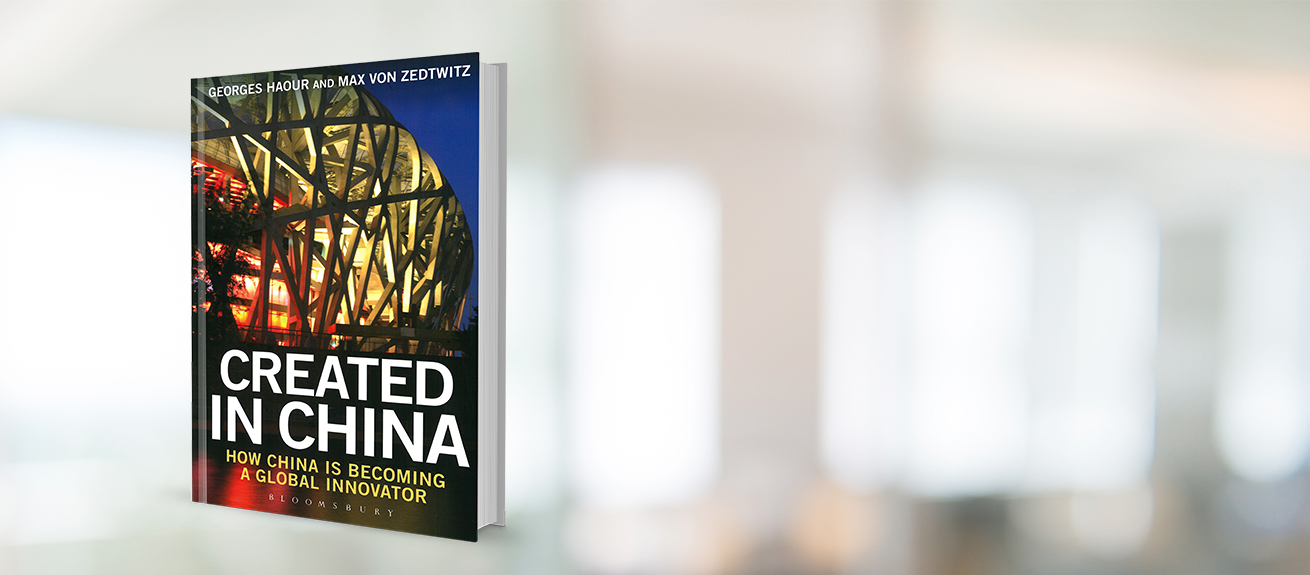

Georges Haour
Professor Emeritus of Technology and Innovation Management
Georges Haour is Professor Emeritus of Technology and Innovation Management. He specializes in management of innovation and technology commercialization. In the UK, he was associated with the Cambridge-based incubator-innovator Generics (now Sagentia) and helped launch the Ipswich-based BT incubator Brightstar. He frequently acts as an adviser to firms/organizations on effective R&D and innovation management as well as technology commercialization for growth and job creation and innovation in China. An in-demand public speaker, he frequently delivers keynotes at conferences.
He regularly travels to China, Japan, and Singapore, and has a special interest in China’s vibrant innovation scene, where the activity on mobile internet compelled him to engage in projects on the digital revolution. One project, 5G Pagoda, includes Japanese companies such as Hitachi, NEC, and KDDI alongside European ones. Another project, Digital Agora, deals with e-health, bridging Switzerland and Shanghai.
Innovation is an all-pervasive notion in our times. What we need is effective and responsible innovations. Furthermore, although technical innovation is indeed a powerful enabler in creating value, we desperately need non-technical, conceptual innovations in order to implement systemic change in dealing with the substantial issues faced by the world.
Born and raised in Lyon, France, Haour graduated from Paris’ higher engineering school ENSCP-Paristech. He has a Master of Sciences (New York) and a PhD in chemistry and materials science from the University of Toronto, Canada.
Prior to joining IMD, he spent nine years leading a business unit in Battelle, Geneva, carrying out innovation projects funded by multinational companies, many of which were in Asia. He hired professionals from six countries and significantly grew his unit’s sales above €4 million per year. Several of his eight patents, licensed to firms, resulted in new business for the client companies.
Earlier, he was a researcher at ATT’s Bell Laboratories, in Murray Hill, New Jersey. In Toronto, he worked with Marshall McLuhan – known for phrases such as “the Gutenberg galaxy”, “understanding media”, and “the global village” – at his Centre for Culture and Technology.
Author of more than 100 publications, Haour has written several books on creating new activities and jobs through effective innovation, including Resolving the Innovation Paradox: Enhancing Growth in Technology Companies (2004), and From Science to Business: How Firms Create Value by Partnering with Universities (2011) which focuses on the difficult process of effectively transferring knowledge and technology to firms.
His book Created in China: How China is Becoming a Global Innovator (2016) argues that China, the world’s manufacturing powerhouse, is diligently shifting to higher value activities. Documenting this momentous transition, the book concludes that, barring major mishaps, China will be one of the world’s major sources of innovations within 10 years or so, particularly in the area of the digital internet, where it is already a leader. The Chinese version of the book was published in 2017.
In 1989, Haour founded the annual International Forum for Technology Management (IFRM), which is held in cities such as Paris, Istanbul, Kyoto, and Shanghai (at Tongji University). For years, he was on the jury of the Innovation Award of The Economist. In Basel, in 2006, with Dr. Fritz Bühler, formerly with Roche, he founded the ECLE executive course for managers from the healthcare sector. He is on the board of several organizations, including three startups and an investment fund.
The digital surf transforms all sectors of activity and our lifestyles. For this global industry, we need robust and efficient regulation, with the example of what Europe is doing.
Les particularités de l'innovation en Chine fournissent des repères sur le cheminement de ce pays pour devenir un innovateur global.
Les manifestations pro-UE en Ukraine me renforcent un peu dans ma conviction que l'Europe a tous les atouts pour être la région du monde la plus attirante, bien kieux que l'Amériquedu Nord. Pourquo...
La crise économique la plus brutale et la plus universelle de l’histoire a été déclenchée par le scandale des «subprime» de Wall Street à l’automne 2008. Alors que les bonus des «greed merchants» r...
Das Internet begünstigt Finanzierungsvorhaben von Projekten durch die breite Masse. Das sogenannte Crowd Financing fordert durch eine höhere Rendite und Effizienz die Banken in ihrer klassischen Ro...
We seem to have a lot of crises on our hands at the moment: the economy, food, energy, health and, in OECD countries, an aging population. ¦On the whole, the world is muddling through the transform...
L'ubuesque tsunami déclanché par Wall Street constitue un événement aussi historique que la chute du mur de Berlin, il y a presque vingt ans. Devant ce délirant spectacle, un pays sourit: la Chine,...
L'ampleur de ses investissements en recherche et développement (R & D) met le Japon en tête des pays industrialisés: chaque année, le Japon investit 3,2% de son PIB - produit intérieur brut - dans ...
Dans l'innovation technologique, étant donné la désaffection de nos jeunes pour les sciences, le fait que les prochaines "trente glorieuses" seront en Asie, les investissements en R&D des multinati...
Les entreprises technologiques ont compris la nécessité de mener des projects multifonctionnels impliquant ingénieurs, spécialistes du marketing, des achats ou de la production. Elles doivent aussi...
The environment is now firmly on the agenda as a business issue. The author takes the retail business as an example and looks at how industry is responding. Retailers face a number of environmental...


